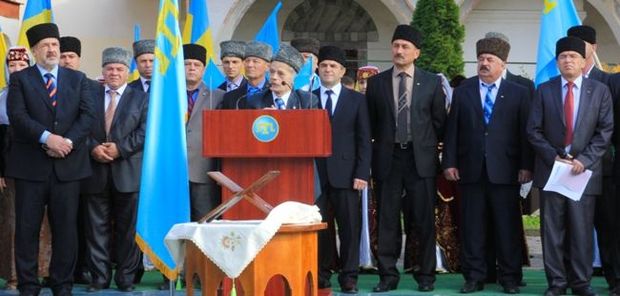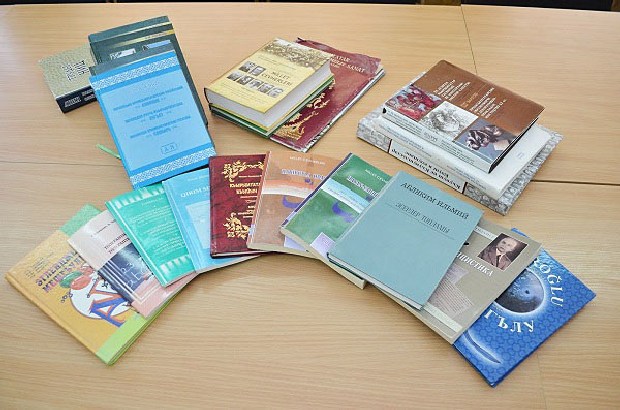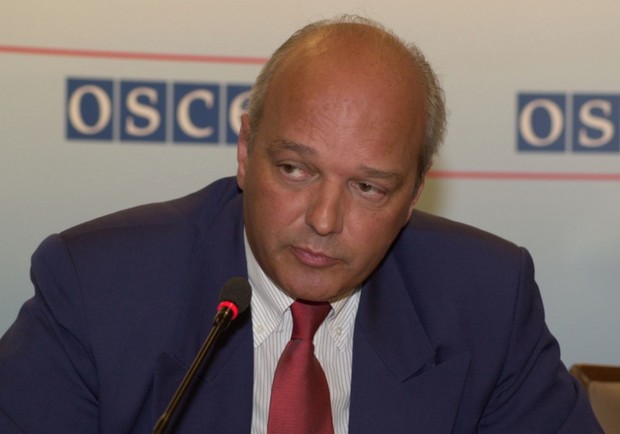Ivan Mezukho: ''Human right activists have lied about human rights violations in Crimea not the first time''
The column of the Crimean political analyst about human rights on the Peninsula
The Western media is discussin a lot human rights in the Republic of Crimea and Sevastopol after their joining to Russia. The results of a recent monitoring of Office of the United Nations High Commissioner for Human Rights on Ukraine and Crimea have turned out to be very unpleasant for Moscow. A Crimean political analyst and columnist of Relanoe Vremya Ivan Mezukho considers the findings of the international human rights activists to be biased, and many of their statements false. His discontent he outlined in a newspaper column written specially for our online newspaper.
The monitoring based on rumours
Last week, Ukraine hosted a presentation of the report on the human rights situation, which was based on the monitoring of the Office of the United Nations High Commissioner for Human Rights, held in the period from 16 August to 15 November 2016. Given that different international institutions still recognize the Crimean Peninsula an integral part of the Ukrainian state, a separate section of the report was devoted to the observance of human rights in Crimea.
This report, as well as other similar to it, contains a number of false conjectures concerning the observance of human rights in the Republic of Crimea and the city of Sevastopol. Human rights defenders are lying about human rights violations in Crimea not for the first time. Furthermore, the Office of the United Nations High Commissioner for Human Rights, stating that it has no representation office in Crimea, in fact, recognizes that they carry out monitoring based on the rumours and the stories of certain people and organizations. It rightly questions the veracity of the report section devoted to human rights on the Crimean Peninsula.
Banned organisations
The height of cynicism in relation to the Russian state and its laws is demonstrated by the report's authors when expressing ''concerns'' about the detention of the activists of the terrorist and recognized in Russia banned organization Hizb ut-Tahrir. Of course, human rights activists do not say a word about that the organization is banned in other, including European, countries.

''The authors of the report also do not respect the decision of the Supreme Court of the Republic of Crimea to ban activities in Russia of the public organization Mejlis of the Crimean Tatar People.'' Photo: geo-politica.info
The authors of the report also do not respect the decision of the Supreme Court of the Republic of Crimea to ban activities in Russia of the public organization Mejlis of the Crimean Tatar People and its recognition as an extremist organization. The main message in the report is the idea about the infringement of the Crimean Tatars and the Muslims of the Peninsula, which is not true. The report does not mention the construction of new mosques in the Peninsula and active participation of the Crimean government in the process. There is no information about government funding of the Crimean Tatar TV and radio company, printed publications and books in the Crimean-Tatar language.
The report imposes the idea of a high level of peoples legitimacy of the Mejlis among the Crimean Tatars, which does not correspond to reality, as the organization has voluntarily withdrawn from participation in public and political life of Crimea and arranged energy and food blockade of the Peninsula, from which people suffered including the Crimean Tatars.

''There is no information about government funding of the Crimean Tatar TV and radio company, printed publications and books in the Crimean-Tatar language.'' Photo: avdet.org
The Ukrainian language
The authors of the report note a continuous decline in the use of the Ukrainian language as the language of education but it does not explain the reasons for this process. Indeed, after the reunification of Crimea with Russia the demand for education in the Ukrainian language has fallen, which can be explained by the fact that parents of future graduates no longer key their children to the training or employment activity in Ukraine. However, in Crimea there is a possibility to receive education in the Ukrainian language and there are people who use that opportunity.
Of course, the authors of the report did not mention the fact that Ukrainian and the Crimean-Tatar national-cultural autonomies of Crimea will receive budget support for the international round tables on cooperation with compatriots abroad.
Absurd accusations
In their opus, the human rights activists also mentioned the elections to the State Duma held in September this year. They said they have ''reliable information'' that state employees were forced to go to the polls under a threat of dismissal. So far, no one has provided real evidence of this ''statement''.
By the way, the authors of the report point out that the international observers at the elections to the State Duma on the Peninsula were absent. The absurdity of this accusation lies in the fact that international organizations themselves did not come to Crimea, no one prevented them from visiting the Peninsula. Besides, at the level of individual experts, the international observers in the Duma elections on the Peninsula were still present.

Gérard Stoudmann during the visit was told about the real situation in Crimea, however the report of the mission of the Council of Europe stated about violation of human rights. Photo: osce.org
Biased human rights activists
The political partiality of the authors of the report, drawing information not ''from the field'', but from rumours, is obvious. However, even when visiting Crimea and seeing the real situation with human rights on the Peninsula, following the visit the human rights defenders begin to write about alleged abuses of human rights. So it was in late January this year when the special representative of Secretary General of the Council of Europe Gérard Stoudmann visited Crimea. During the visit he was told about the real situation in Crimea, however the report of the mission of the Council of Europe stated about violation of human rights.